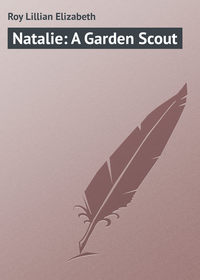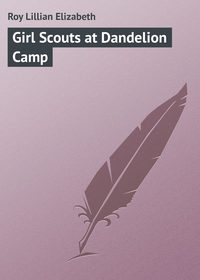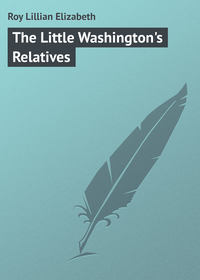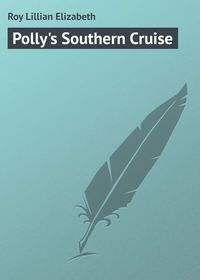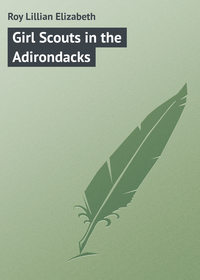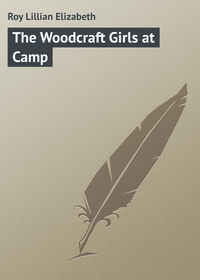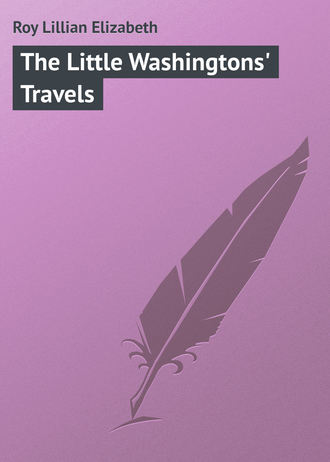
The Little Washingtons' Travels
"That's plain soup!" scorned George.
"I don't want it – do you?" asked Martha, appealing to Anne and Jack.
"We'd rather have something nicer," replied they.
Mrs. Parke ignored these side murmurs and continued ordering.
"Then you can bring us some cold beef, bread and butter, cheese and crackers, and milk for the children. We ladies will have a cup of tea."
"Yas'sam!" replied the polite waiter, leaving the car.
"But what are we going to eat? You never give us cheese at home!" cried Martha in dismay.
"You can have the consommé, crackers and milk. If you care to have a bit of cold beef, you may," replied Mrs. Parke.
"But you didn't order any pie, or cake, or ice cream!" remonstrated George, almost speechless with surprise.
"No, because they only have a buffet lunch, I find. They haven't any hot dishes, or desserts other than the kind ready-made by companies. As you know, I never care to have you eat pies or ice cream made in factories."
That luncheon, so eagerly looked forward to when suggested, was a dreadful failure! Only soup and plain crackers and milk that one could get at home any time for the asking!
Arriving in Philadelphia, Mrs. Davis remarked as she noted the disappointed look of the children:
"I know where there is a fine soda-fountain near here, and they serve the best ice cream!" said she.
"Oh, let's!" sighed Martha.
And Mrs. Parke, knowing opposition to be futile, followed after the eager group as they hurried to the corner drug store.
A taxicab soon took them to the Davises' house, where the children were engaged all afternoon, in visiting the entire house and trying out the toys in the playroom.
As the two ladies sat in the upstairs sitting-room, Mrs. Davis said: "Do tell me what caused you to suddenly change your mind about including the story of Washington's campaign in and about Philadelphia?"
"Why, I remembered that, with a story so fresh in their minds, they might try to play it out on the Philadelphians. If you or I should happen to go shopping, or be invited out to tea, we might return to find Washington's army charging on Chestnut Street, or retreating to the police-station!" Mrs. Parke laughingly answered her.
"It will not need refreshed memories to bring about such battles. They are apt to open an active campaign without notice, at any time or place," laughed Mrs. Davis.
"Still, I think it wiser to save Philadelphia's war troubles until we are safe back home on the estate," said Mrs. Parke.
Soon after this conversation, the ladies heard laughter and the patter of feet upstairs in the large playroom, and felt sure the four cousins were playing as other children did, with dolls and trains of cars, and rocking-horses and other numerous toys.
But the uproar grew so loud that finally the two mothers went up to see what was going on.
As usual, George was commander-in-chief of the army and Jack was Howe. Martha was Lafayette and Anne was Cornwallis. The dolls, tin soldiers, stuffed animals, and everything in the imitation of any living thing were arrayed in two lines, facing each other. George was furiously riding a rocking-horse, while waving a tin sword wildly about his head. Howe stood on the window-seat issuing orders to his side. Lafayette and Cornwallis stood back of their lines, shooting peas at the helpless armies. For every tin soldier or saw-dust doll shot down, a great whoop of cheer came from the victorious side. When two victims, one on each side, fell at the same time, the yells were deafening.
So enthused were the warriors that they failed to note the door opening a wee bit, so the ladies withdrew again, happy to find the children playing quietly (?) in the house.
CHAPTER VIII
A FIGHT WITH THE HESSIANS
"Children, have you planned to do anything this morning?" asked Mrs. Davis, at breakfast the following morning after their arrival.
"What did you expect to do?" countered George.
"Oh, nothing much, but it looks so much like rain, and the Scotch mist is so heavy and cold, I thought you children could play upstairs this morning while aunty and I do some shopping downtown. We will be home for lunch and take you to a matinee if you will be good," promised Mrs. Davis.
"Cross your heart?" demanded Jack, for matinees were rare treats, as Mrs. Davis thought children were better off at wholesome play in the fresh air, than sitting in a crowded theatre watching make-believe scenes on the stage.
"Yes, I'll take you to Barnum's Circus, showing this week in Philadelphia."
"Oh, goody! goody! We'll be good, all right!" cried George.
"Indeed we will. If it clears off some we might play basket-ball out in the backyard, that's all," promised Anne.
So the ladies started downtown with assurances that the four cousins would be models of virtue and good behavior until noon when they would look for their reward.
Soon after they left, the mist lifted and the air grew warmer and pleasant.
"It's kind of stuffy in the house, isn't it?" said Jack, after a heated bout with George, where both wore boxing gloves, and the girls were umpires.
"Yes, let's go out and cool off," agreed George, mopping his face.
"We can play out in the backyard, you know," suggested Anne.
"I'm so warm I don't want to play ball, but let's go out anyway," said George.
So the four ran downstairs and out of the rear hall-door to the piazza that had steps leading down to the square of grass that was used for drying clothes. Back of this plot was a small garden that was cultivated in the summer, but was now chiefly used for a basket-ball ground.
The wash was out, so the grass-plot was impossible for the children, and they skirted the laundry and reached the barren garden.
"What's on the other side of your high fence?" asked George, eyeing the six-foot boards that had nice cross-pieces at convenient distance from the ground to the top.
"Nothing, only a big vacant lot. Father says the owners have had trouble over the title to it for so many years, that now they couldn't improve it even if they had the money left to do it on," said Jack.
"And every kind of youngster from down in those tenements comes up in that lot to play," added Anne, with disgust.
Voices were now heard on the other side of the fence and George looked at his companions.
"Guess I'll climb up and sit on top and watch 'em."
"So'll I! That won't do any harm, I guess," said Jack.
Anne and Martha watched their brothers climb up, and then following, they all sat on the smooth round top of the fence.
Some boys from the tenements were about to have a game of baseball. At first, they failed to see the four spectators sitting on the fence. When they did, however, their remarks were not flattering.
"Ha! See the sports up on the bleachers!" cried one.
"Come down and we'll show you how we bat!" called another, and at this his friends all jeered.
Jack wrinkled his nose and stuck his tongue in his cheek, making a wry face at the last speaker.
That led to more remarks from the diamond, and more faces from all four perched on the fence; finally, at a taunting sneer from one of the team on the diamond, Jack replied angrily.
Over at one side of this large vacant area was a depression that generally held muddy water from past rain storms. It seldom filtered into the earth, and the sun not reaching that side of the property, failed to dry it up. Hence, the younger children from the tenements played in this large puddle, sailing boats, or throwing stones to watch the splash.
As Jack retorted, one of the boys standing near the puddle, stooped and flung a handful of dripping mud at the fence. It struck low, but George instantly shouted:
"Don't you do that again! It's against the law to throw things in city limits!"
"Ha! Lot you know about law! Why, sissy, we're a law by ourselves!" laughed one of the boys, going over to pick up a handful of the ooze.
The rest of the gang instantly followed their leader, and before the four on the fence could imagine what would follow, the air was filled with flying mud-balls. Some struck the fence, some flew over and spattered the clean white clothes, and some struck the four defiant citizens on the fence, although they ducked and dodged many of the missiles.
"Shall we jump down and let them laugh at us?" asked Jack.
"Don't you dare! Even if you do I won't!" cried Anne, too furious to wonder what might be the result of this fracas.
"I should say double no! For a dare, I'd jump over and fight them!" declared George.
"Wish we had our air-rifles!" said Jack.
"Are they fighters? Do they play fair?" asked George.
"Fight! Like tigers, but they don't know what fairness means. The whole mob'd just as soon light on you if you went over as they would throw these mud-balls," sneered Jack.
"Let's all four attack them!" ventured Martha, who was as daring as George.
"There are six of them – besides the mob that will run the minute they sniff a fight!" warned Jack.
"I've got it! Let's jump down, run alongside the house by the areaway, and get out on the street. We can run around the corner and get to the empty lot from the street, then they will be taken by surprise and can't run away," suggested Anne.
"I wish to goodness we had two other friends," sighed Jack, as the four dropped from the fence to the wild jeering of the six boys on the other side.
"Oh, Jack! Maybe Bob and Dick are home by this time. You know, when we went away, they were expected back from the country that Saturday," said Anne significantly.
As the children ran across the garden they beheld with dismay that the lovely white clothes on the lines were now all bespattered with mud. This made them determined to mete out judgment.
"Coo-ooh! Bo-ob!" shouted Jack, as he stood under the neighboring dining-room window.
"Come ahead out, Dick!" yelled Anne, making a megaphone of her hands.
Two heads appeared at the side window almost immediately.
"When did you get home?" called Bob, raising the sash.
"Never mind that! Hurry out – Dick and you! Big fight on," said Jack hurriedly, running to the street.
Bob and Dick needed no further incentives, but were soon with the other four children on the sidewalk.
"Where?" was all they said.
"Empty lot back of our house. Those boys dirtied all of Bridget's clean clothes and pelted us with mud too, besides insulting and doing lots of things to us!" said Jack, while the six comrades, friends on the spot without introductions to the two southern cousins, ran around the corner of the street.
When they reached the vacant lot, however, they hid back of the stone steps belonging to the adjoining house, and peeped about the corner to see what chances they had for a victory.
To their delight they found that the two larger boys had been called away for some reason, and only four boys of their own size were left playing ball in a half-hearted way.
"Agh! dem sissies ain't fighters! I t'ought sure dey would come ober de fence and pitch in!" said one of the ball-players to his companions.
"Yeh! So'd I. Ef Bill and Huck stayed here, we coul' have chased 'em over into their own yard and licked 'em!" said another.
At this information, George exchanged glances with Jack.
"Shall we warn them, or just fall in?" asked he.
"Did Washington send a polite letter to Howe or any of the British, when he started a fight?" was all Jack replied.
"Here you, Bob – you tackle that red-headed fellow. Dick – you take care of the fat one. Jack can fight the thin one and I'll take charge of that freckled scrawny one – I can fight better than any of you, I guess!" planned George hurriedly.
"Here! here, what about us two girls! Can't we help?" cried Martha, with deep grief at the turn events appeared to be taking.
"Sure! You watch and warn us, and if the other two fellows come back, you blow this whistle for help!" advised Jack, handing his newly-acquired police-whistle to Anne.
Before the four ball players could well understand who was rushing, or what the four boys were about, each one of the Washington forces had picked his man and was already busy on the offensive.
In a few moments, the ball players, termed by George the low-down Hessians, recognized the two boys from the fence-top and with a yell of fury, pitched in to fight with all their strength.
George bawled out orders for his companions to follow, and at every fresh attack upon the Hessians, the four Americans whooped and fell to with renewed lust of battle.
Martha and Anne were deeply interested in hoping and watching for the Hessians – those cruel heartless fellows, who had injured and destroyed the lives and properties of the American citizens at Brunswick, Princeton, and other Jersey towns. It served them good and right to have Washington's men flay the breath out of them.
But the Hessians were almost spent and ready to give up when Cornwallis, in the form of two pals from the tenements, came along and seeing the battle, added reinforcements to their almost vanquished army.
Now Washington was desperate. He and his men were out-numbered by the arrival of the new forces, who were fresh and somewhat larger than the rest of the Hessians, and this meant watchful and wary war.
But they had not counted on Anne and Martha. The moment the two reinforcements from the Hessians arrived, Martha cried:
"Come on, Anne! Let's throw mud at them!"
Mud-balls flew thick and fast for a time, and every one – Americans as well as Hessians – was blinded, choked, or spattered before Anne remembered the whistle! Neither Jack nor she knew what would happen if it were used. They had heard, however, that in times of dire need help would come upon the blowing of a whistle.
The whistle did bring help. But Anne wished she had not used it when she saw a strange officer run across the street, and rush into the mob of boys where nothing but flying fists could be seen. The Hessians were accustomed to being routed by the police, and instantly took to their heels, leaving the battle-field to the American forces.
The officer thought the four remaining boys were also from the tenement district, as their clothes were torn and spattered with mud. He mustered them in a group, and was about to march them off to the station-house, when the fat laundress from the Davises' house mounted a ladder she had placed against the fence, determined to investigate the cause of the mud which she had found all over her clean laundry.
The policeman was a friend of Bridget's, and she berated the "durty varmints," who ruined her week's washing. She shook two great fists at the four boys, but not until the two girls had explained, would they believe that the boys had been erstwhile clean, decent citizens fighting under Washington's command.
So the battle with the Hessians ended, and the American troops had to retreat to their "fastnesses in the Jersey Hills."
As the six warriors and the policeman walked up the street where the houses of the children stood, a taxicab pulled up alongside the curb and stopped before the Davises' house. Two ladies alighted, and one of them paid the chauffeur. As they turned to go up the steps of the house, the vanquished army met them.
"Well, mother, that was a great battle, and I'm sure those Hessians will know better than to attack defenceless people again," bragged George, trying to see from a swollen eye.
"Not defenceless – but 'on-the-fence' Americans," corrected Jack, tittering.
"Oh, oh! Are these our children?" wailed Mrs. Davis, backing away from the muddy, tattered group.
"They says they are – and Miss Bridget – she oughter know when she sees 'em. She says dey are belongin' here, all right!" said the officer, grinning at their plight.
"Where did you find them, officer?" asked Mrs. Davis.
"Yander, on the nex' block! They were fighting with a lot of ruffians," said the officer, lifting his hat and preparing to leave.
"Oh, thank you so much for taking care of them! And do buy some candy for your children at home, officer!" said Mrs. Davis, handing the man a dollar.
The children then proudly related the "Battle of the Hessians." The mothers, however, were not impressed, and soundly reproved them for their failure to keep the promise of good behavior.
As they left the dining-room after lunch, Mrs. Parke remarked: "We secured tickets for the circus, but I don't see why we should take you performers when you manage to have all the circus you want without troubling us."
"What do you suppose we hurried and bathed and combed our hair and dressed up for, if not for the circus this afternoon?" complained Jack, thinking of all the wasted moments used to make his neck clean, and to brush down his unruly cow-licks.
"Surely you didn't expect to come into this dining-room covered with mud and rags, did you?" cried Mrs. Davis, aghast.
"Not exactly, but we didn't have to waste so much soap and hot water, if we thought you were going to turn traitor. I'm not surprised Washington had such a hard time in that war, when even his own relations went back on him – after he fought for the honor of his people the way he did!" grumbled George.
"I'd just as soon be born a descendant of Howe as to have folks misunderstand your Americanism!" added Jack.
But this was too much for the mothers, who were Daughters of the Revolution, and although the connection between Washington at Princeton fighting the Hessians seemed to have nothing in common with the boys of the tenement alleys, they felt the spirit of patriotism that had moved their army to enter the defence of the place.
So, in spite of the dire need of punishment for four fighting Americans, they were treated to the circus instead. And the event of the battle in the morning was quite erased from their minds when they came forth from that wonderful place, having feasted their eyes on animals, tricks, clowns too funny to describe, trapeze actors, acrobats, and too many things to remember all at once.
CHAPTER IX
FAREWELLS TO WASHINGTON
Letters came from New York, stating that Mr. Parke and Mr. Davis would be in Philadelphia the following day, so if the children had not yet visited various sights of historic interest, they would escort them about and give the ladies a rest.
"Now, I'll tell you, mother! It is my birthday, you see, the day after to-morrow, and you promised me a party this year. While father and uncle take us about, you and Aunt Kate can fix up a fine party at home. Ask every one you know and let's play Hallowe'en games, even if it is too soon," said Jack coaxingly.
"It would be nice to have that party while your cousins are here," admitted Mrs. Davis.
"Oh, aunty, you don't know what a good worker mother is when there's a party to be made ready!" exclaimed Martha eagerly.
"That settles it! Aunty must work for the party," laughed Mrs. Davis.
"We'll all work for it. You just tell us what to do, and see if we can't hustle!" bragged Jack.
"I suppose you will be glad to crack walnuts and shell them for cake, eh?" teased Mrs. Parke, who knew of her children's failing in that line of work.
"Try me!" laughed Jack.
So it was hastily decided to celebrate Jack's birthday with a sort of Hallowe'en party, although it was only the middle of October. And every one went to work on the plan for the celebration.
About a dozen invitations were sent out, which, with the four cousins, would make sixteen guests for the party; this was said to be quite enough for a jolly time. Then cakes, prizes and other things had to be prepared, and in the midst of the pleasant excitement the two fathers arrived.
"Seen all of Philadelphia, I suppose," said Mr. Parke later in the evening.
"Nothing but the battle-field between the Hessians and Washingtons," said George.
"Now, what does that mean?" asked Mr. Davis.
So the boys told about the fight, in terms to suit their patriotic sense of the affair, so that it did not appear to the men as having been just an ordinary brawl between two hostile factions, but that is what both the ladies persisted in calling it.
The next day the two men escorted the four children as promised, Mr. Davis using the automobile for the trip. They visited the old state house, Girard College, the Custom House and Subtreasury, and the new city hall, which had cost more than $20,000,000, and is one of the finest and largest of municipal buildings in the United States. The statue of William Penn crowns the top of its dome. Then, too, they saw the post office, built of granite, which, they were told, has no superior in postal buildings in the country.
In the state house the four little patriots saw a large apartment on the first floor which the men said was Independence Hall. It was decorated with quaint carvings, and pictures of famous Americans adorned its walls. Many of the chairs used by the members of Congress in 1776 still stood here to remind the children of that great event – the reading and signing of the Declaration of Independence, executed in this city.
"Now, children, let us go and see the famous Liberty Bell. After that we will visit the rooms where Colonial relics are kept on exhibition," said Mr. Davis.
The children looked well at the token of what the great Revolution stood for, and having read the inscription and felt sorry for the crack in its side, they followed Mr. Parke to other sights.
They drove to Carpenters Hall, the building where the first Colonial Congress met, the board that abetted Washington in his endeavors for his country. Then they saw the William Penn dwelling, moved to Fairmount Park. They visited Christ Church, where Washington worshipped when president. Also Old Swedes Church, which was a memento of the old days.
Then, among the modern places of interest, they took the children to Masonic Temple, because Mr. Davis was a Free Mason, and was very proud of the granite structure. Then they drove past the Academy of Fine Arts, containing the pioneer art collection of the United States, as the children did not particularly care to go in and examine the objects.
They stopped for a short time in the Academy of Natural Sciences, where the oldest and most extensive collection of natural history objects can be found.
From there they passed the Ridgway Library, the United States Naval Asylum, and many other great and well-known buildings. In Fairmount Park they visited the Memorial and Horticultural halls, both being handsome souvenir buildings from the Centennial Exhibition of 1876.
"Of course you two Southerners know who first settled our fine city?" asked Mr. Davis, as they came from the museum and climbed into the automobile again.
"Why, I think Benjamin Franklin did, didn't he, Jack?" said George, taken unawares.
"No; William Penn did. He located and planned the city, and also made it the chief city of his province of Pennsylvania. He also settled the first order of 'Friends' in this country, and because the name 'Philadelphia' means 'brotherly love,' he called it that. In 1701 Penn granted the town a charter, which constituted it a city with city privileges.
"Benjamin Franklin, who lived in Philadelphia during the greater part of the eighteenth century, planned many of its institutions, such as the fire department, libraries, parks, and other public places. As Congress first met here, and continued to do so after the British evacuation, Philadelphia became the seat of government from the year 1790 to 1800. The United States mint was built and established here in 1892."
On the homeward drive the children passed the oldest public library in the United States, founded by Benjamin Franklin, containing about 175,000 volumes.
"To-morrow, if you like, we will drive you out to the suburbs of Germantown, Manayunk, and Frankford, thence on to the places where you have heard of the battles Washington fought with the British," promised Mr. Davis, as they reached the house and wearily climbed the front steps.
But the party engaged so much attention that the trip to historic spots was almost forgotten in the flood of events which followed.
Every one invited came, of course, and besides Bob and Dick, the boys next door, there were other girls and boys of Jack's age. As it was said to be a premature Hallowe'en party, because the two cousins would soon be going home again, no one brought a birthday gift, as most of the guests had forgotten entirely that it was the date of Jack's birthday.


